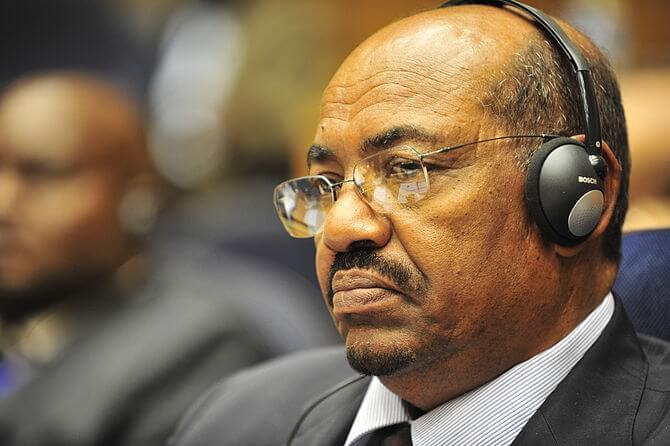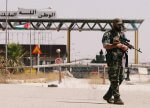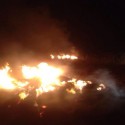Sudan’s Defining Moment: the Uneasy Transition to Democracy
Guest Op-Ed on the aftermath of Mar al-Bashir’s forced rem,oval from office and the negotiations to form a new government and establish Democracy.
By Magdi A. Mofadal
The Sudanese people, who pioneered in the Arab world in October 1964 with their first-ever “Arab Spring”, surprised the world once again on April 11, 2019 with their third great popular uprising. They successfully overthrew the regime of Omar al-Bashir, who came to power in June 1989 through a military coup ending then Sudan’s
The main actors in the current transition are the Transitional Military Council (TMC) and the Forces of Freedom and Change (FFC. They initialed on July 17th, 2019 the agreement on the formation of the structures and institutions of the three-year transitional period. These institutions will govern the country through its fourth transitional period at the end of which free and fair general elections will be held. The negotiations on the Constitutional Decree, which will determine the prerogatives of the transitional institutions and the relations between them, will be resumed in the next couple of days.
The ouster of the deposed regime ignited hopes that the country is ushering in a new era marked with freedom, peace, justice and prosperity. However, this transition is sailing at very troubled waters. The fact that it took the TMC and the FFC more than three months of tough negotiations and ups and downs to reach this agreement testifies to the challenges in the road ahead. Now Sudan is facing tremendous economic, political, social, security, and diplomatic challenges any one of which may threaten the nascent democracy.

The country’s economy is tattering with a host of enormous difficulties ranging from high inflation rates and depreciation of the Sudanese Pound, unsustainable external debt, to high levels of budget and balance of trade deficits. These challenges can only be overcome through substantial economic support from Sudan’s regional and international partners.
Politically, there is an unprecedented level of fragmentation within Sudan’s political parties which account now for more than one hundred. Some of them would enter this new democratic dispensation without holding their national conventions for more than three decades. Moreover, the political atmosphere is very polarized and charged with political bitterness, grudges and negative emotions that could pose a real threat for the emerging democracy. A comprehensive process of national reconciliation, healing and justice is included among the main priorities of the transitional period. In this respect, the country can benefit from successful experiences such as those South Africa and Rwanda. Building and sustaining trust among all actors in the transitional period is of paramount importance. In addition to, preserving the unity and cohesion of the FFC components cannot be overemphasized.
Socially, the country is suffering from widespread unemployment especially among young college graduates. There are big numbers of internally displaced persons (IDPs) in the conflict –affected areas .They are in a dire need to be resettled and given the opportunity to start a new life. Also, there are high levels of income disparities in the country and large segments of the society feel that they have been left out in the little socio-economic development achieved since Sudan’s independence in 1956.
In the security field, a lot of efforts are needed to control the flow of small arms and light weapons as well as in modernizing the security institutions and building their capacities. The expected peace agreements in Darfur, South Kordofan and Blue Nile will include security arrangements that need to be carefully tackled and implemented. Also here is a very fluid security environment in some of Sudan’s neighboring countries that may endanger the transition in Sudan.
Beside these internal difficulties facing Sudan, there is an unconducive regional environment that may pose a real threat to the democratic transition in Sudan. The tension and polarization in the neighboring Arabian Peninsula may have its negative imprints in Sudan. This needs to be carefully managed so as to shield Sudan from becoming a battleground for other conflicts.
Thus, it is crystal-clear that Sudan is at the cross roads. At this defining moment in its history, the country needs the coherent and constructive efforts of all its regional and international partners. All their highly appreciated previous political, humanitarian, economic or diplomatic assistance to Sudan will be in jeopardy unless they work harmoniously to support the country’s fourth, and hopefully last, democratic transition. Any set back in Sudan, God forbid, will certainly have dire consequences for an already volatile region.
Magdi A. Mofadal is the Charge’ d’affaires ad interim, Sudan Embassy –Washington D.C. The Op-Ed was contributed by his office


- Israelisnipers shooting and killing hospital workers in Gaza - December 11, 2023
- CAIR Condemns Israeli Executions of Wounded, Unarmed Palestinian in West Bank - December 11, 2023
- Arab and Muslim American voters face a “simple choice” between Biden’s inhumanity and Trump’s edgy politics - December 9, 2023

























